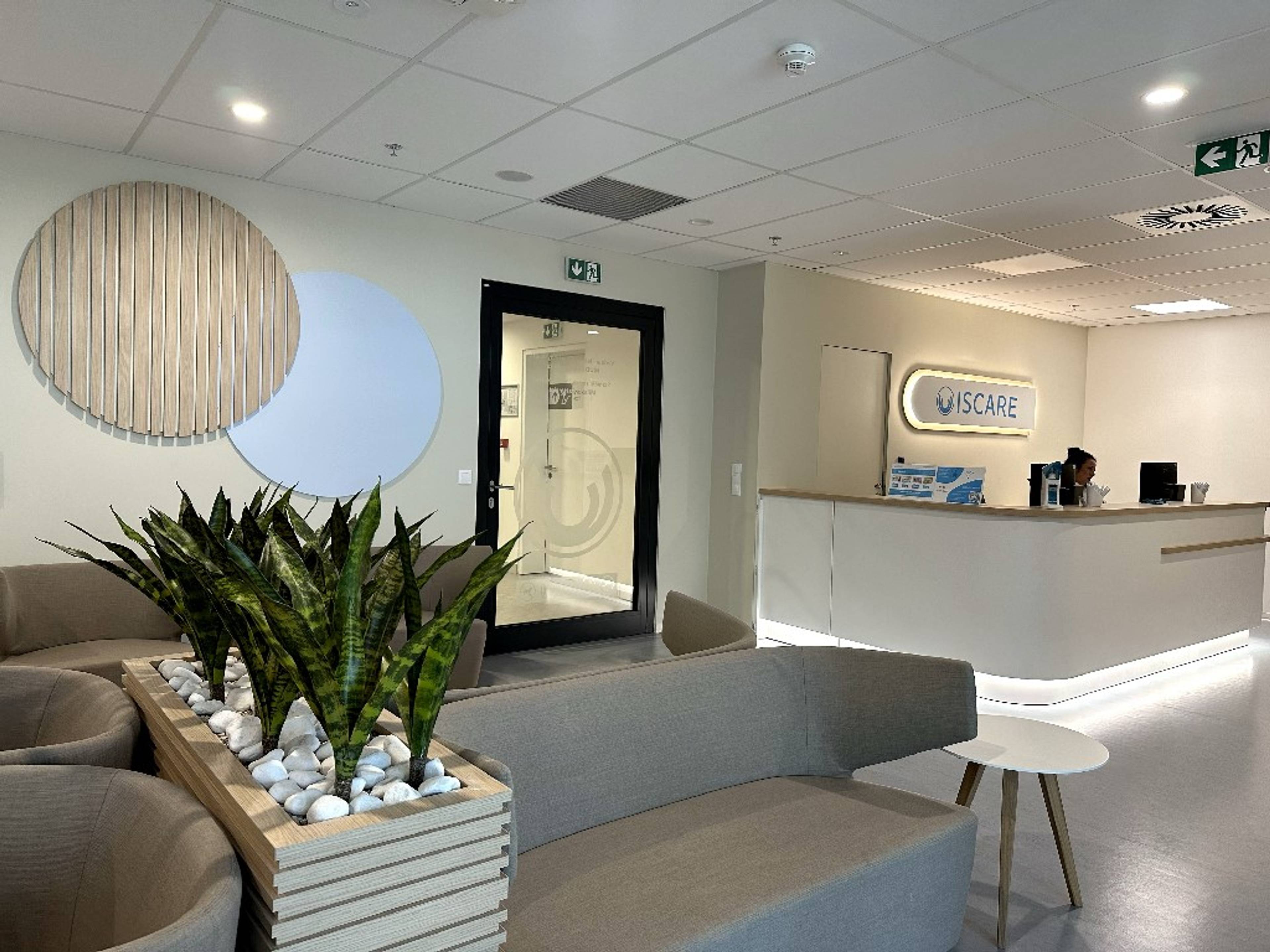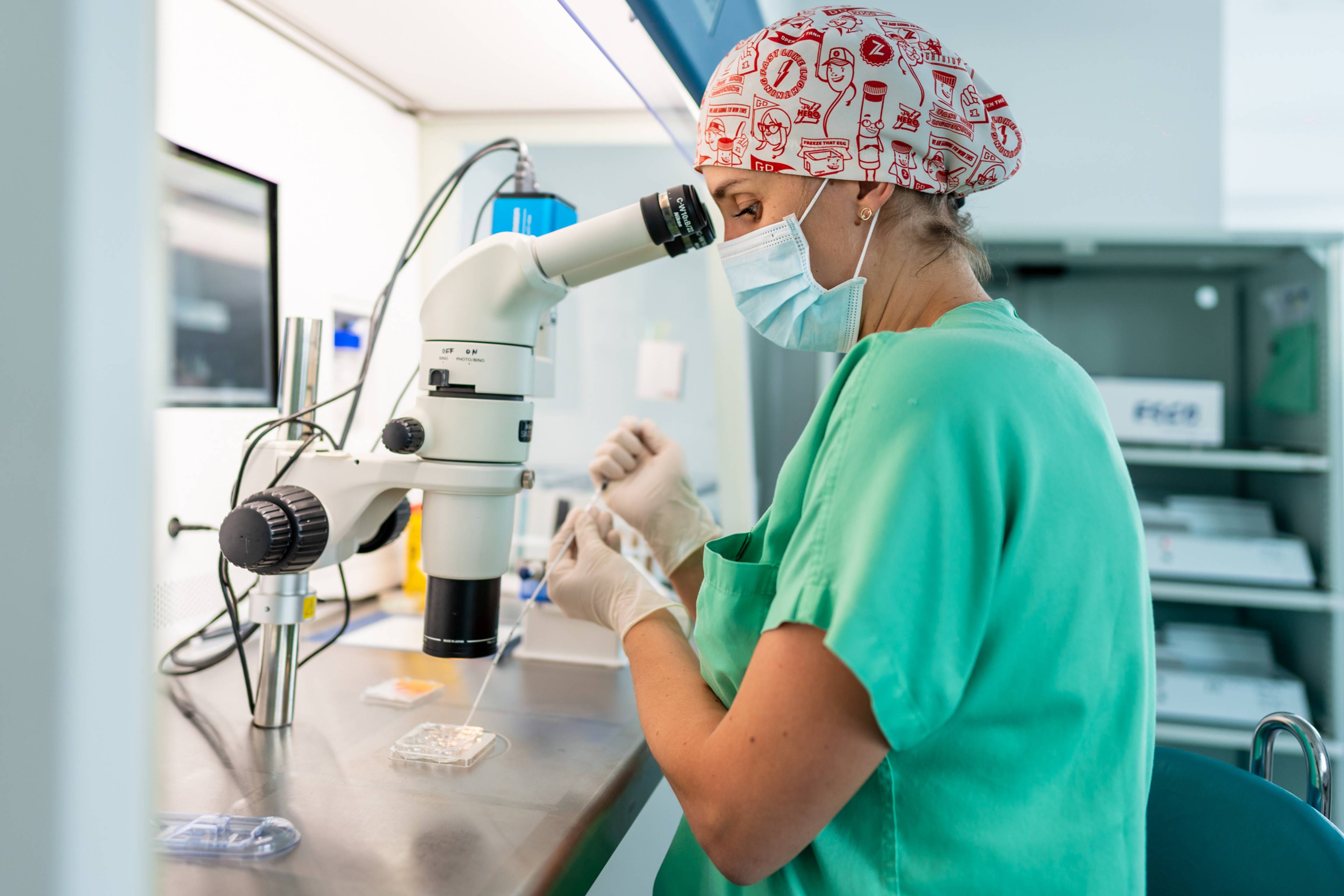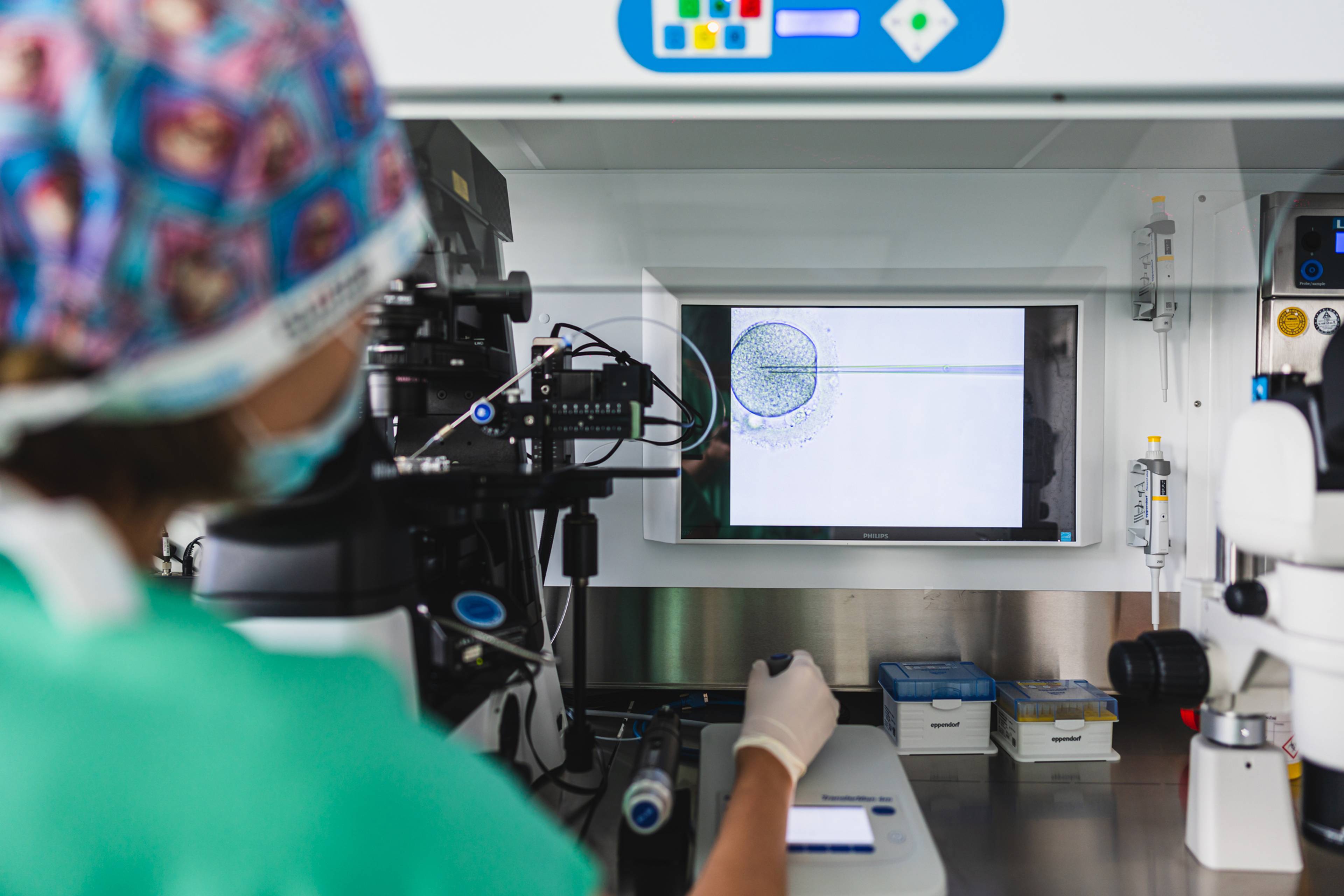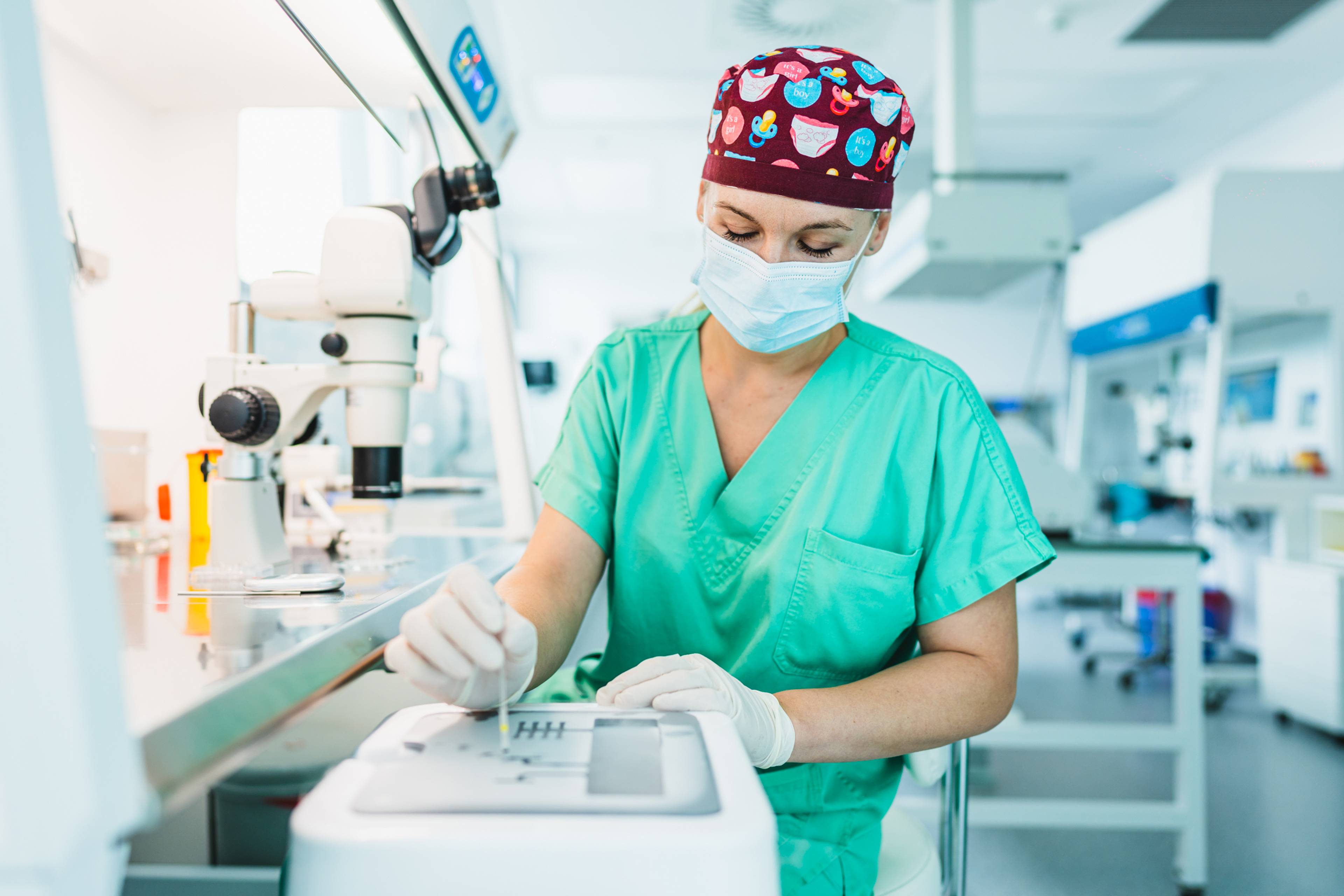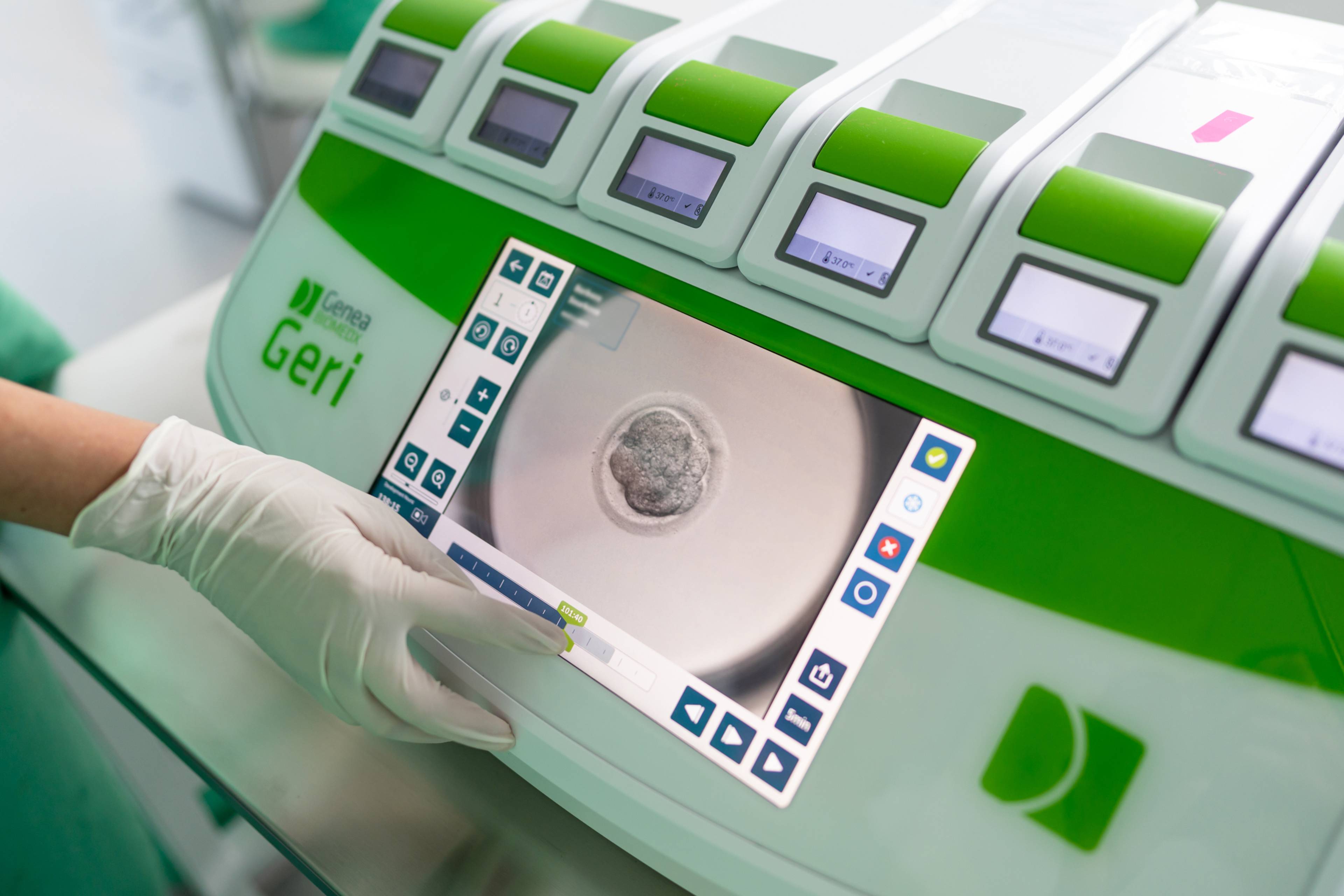Laboratory methods for higher chances of pregnancy
Appropriately chosen laboratory methods, performed by an experienced team of embryologists and laboratory technicians in our embryology and andrology laboratory, significantly increase the chances of pregnancy. These add-ons lab methods increase the chances for a successful and safe pregnancy in every part of the assisted reproductive process.
Discover your pathway to parenthood.
At the ISCARE Clinic, we understand the challenges of infertility and offer advanced laboratory methods to help you on your journey to parenthood. Our specialised techniques, like Intracytoplasmic Sperm Injection (ICSI) or prolonged embryo cultivation, boost the success rates of artificial insemination, giving you a better chance of conceiving.
We know that fertility treatment can be overwhelming, both physically and emotionally. That's why we're here to provide you with all the information you need to feel confident and empowered on your fertility journey.
Explore our website and read below to learn more about artificial fertilisation and the laboratory methods we use at the ISCARE clinic.
Spermiogram
Semen analysis is crucial for diagnosing male infertility. A Spermiogram examines key factors including volume, appearance, total sperm count, and motility.
MESA/TESE
MESA/TESE are microsurgical techniques that we use when there's no sperm in the ejaculate (azoospermia), if there's erectile dysfunction or similar issues.
Microfluidic sperm sorting chip
Sperm selection with the microfluidic sperm selection chip (MFSS chip) is a gentle way to pick high-quality sperm for artificial insemination later on. The MFSS chip, ZYMOT or FERTILE Plus, doesn't use chemicals and is very gentle.
ICSI
ICSI, or intracytoplasmic sperm injection, is a cutting-edge technique where a single sperm is precisely injected into an egg (oocyte) using advanced microscopes.
Meiotic spindle visualization
Thanks to polarizing microscopy, we can optimize the timing of fertilization and thus improve the quality of the embryo.
Prolonged embryo cultivation
Prolonged cultivation is a lab technique where embryos are grown for more than 72 hours. We often let embryos grow for 4-5 days, ideally until they reach the blastocyst stage. By day five, we can assess the embryo's development and its embryonic layers. Prolonged cultivation increases the chance of pregnancy.
Embryo monitoring time-lapse GERI
The GERI device keeps track of embryo growth round the clock, helping us study it closely. We can analyse digital records to evaluate embryos objectively.
Preimplantation Genetic Testing
Preimplantation diagnosis involves using molecular-biological tests to check the genetic status of embryos.
EmbryoGlue
EmbryoGlue helps embryos stick better to the uterus, improving the chances of successful implantation. It's like a bonding agent that makes the connection between the embryo and the uterus stronger.
Assisted hatching
Assisted hatching is a tiny adjustment we make to the embryo to help it settle into the uterus more easily. We gently thin out the outer layer of the embryo.
Vitrification
Vitrification is a technique of freezing reproductive cells (oocytes, sperm) and embryos, in which the cells are rapidly frozen to -196 ° C in a few seconds.
Cryopreservation
Cryopreservation, also known as cryoconservation, is a method used to freeze germ cells or embryos using liquid nitrogen, so they can be stored for future use. Cryoconservation uses cryoprotective agents to help protect the cells during the freezing process. It's a safe way to preserve biological material.

PhDr. Dalibor Jiříček
Fertility Care Coordinator
Contact us
Take a look
How it looks like at
Assisted Reproduction
